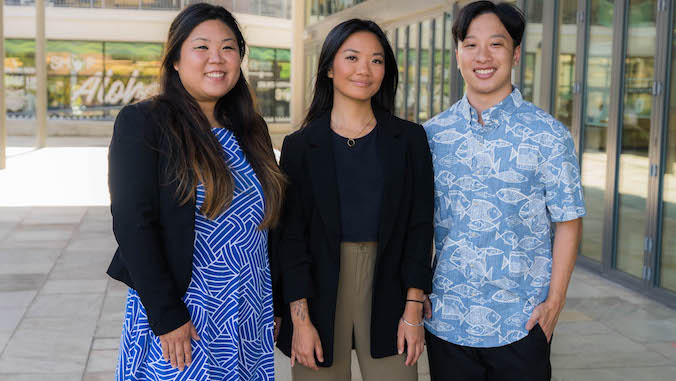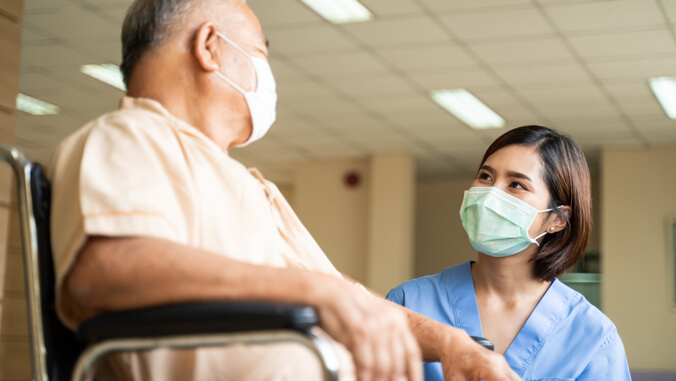
Two new nursing programs at the University of Hawaiʻi at Mānoa have been developed to help fill the state’s need for skilled nursing educators to train future nurses. The Nancy Atmospera-Walch School of Nursing (NAWSON) is now accepting applications for the master’s of science in nursing education and leadership (MSNE&L) and the graduate certificate in nursing education. Students will begin courses in fall (August) 2023.
An online information session for the MSNE&L is being offered on December 12, 4—5:30 p.m. (register here).
“Both programs will attract different levels of nurses who are interested in changing career paths to expand their knowledge and expertise in nursing education,” said Merle Kataoka-Yahiro, NAWSON professor and MSNE&L program director.
Related : Funding to address statewide faculty shortage, October 2022
Due to COVID-19, the nursing workforce shortage has become severe, with a critical need for working professional nurses at the baccalaureate level and higher to advance with concentrated coursework in nursing education to support faculty and instructor needs at Hawaiʻi’s nursing schools. Gov. David Ige recently released funding that will enable UH to hire 39 nursing instructors to support approximately 230 nursing students statewide.
“These two new programs were developed as there is currently no specialty track in nursing education in Hawaiʻi’s public or private universities/colleges, and this is where UH Mānoa can play an important role in strengthening nursing education for the state,” said Clementina Ceria-Ulep, NAWSON interim dean and professor. “Increasing the number of nursing educators (teachers) will enable our local nursing schools to accept more students and produce more new graduate RNs.”
MS in Nursing Education and Leadership
The MSNE&L program is open to post-baccalaureate nurses and advanced practice nurses, and is ideal for nurses who want to advance their careers and become nurse educators.
Through their experience in these programs, graduates bridge role change and development from novice to expert.
—Merle Kataoka-Yahiro
Students enrolled in the program will gain knowledge and expertise in nursing education, best practices and innovation in teaching and learning, and leadership development.
The 36-credit program can be completed part-time in three years or full-time in two years, with the majority of classes based online. Through lab, fieldwork and practicum courses that will be held in-person, students will be immersed in real-world teaching and learning opportunities. Neighbor island students in the program will have the opportunity to complete their practicum experiences in their home communities.
Registered nurses (RNs) who graduate with an MSNE&L will have several career options. As a nurse educator, there are employment opportunities in a variety of settings and positions, such as a clinical instructor, unit nurse educator, or a university lecturer, instructor, assistant, associate and professor in nursing. Those who are employed in hospital settings may be responsible for teaching patients and health professionals.
Graduate Certificate in Nursing Education
The part-time graduate certificate in nursing program is ideal for working professional nurses or those wanting to advance their nursing careers. The program will enroll students every other year.
The certificate program is open to individuals with:
- a bachelor’s in nursing (BSN) or higher;
- an associate’s in nursing (ASN) and a bachelor’s degree or higher in another field;
- or currently enrolled graduate nursing students.
RNs may obtain their national nursing certification as a nurse educator. The program also enables RNs to use credits earned in the certificate program toward continuing education credits to meet the Hawaiʻi State Board of Nursing continuing competency requirements for RN renewal. Credits from the certificate program may also be applied to the MS in nursing education and leadership program.
“Through their experience in these programs, graduates bridge role change and development from novice to expert,” said Kataoka-Yahiro. For more information about the programs, visit the NAWSON website.


